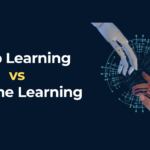Larry Kaufman is a prominent figure in the world of chess, known for his significant contributions as a player and a computer chess programmer.
He became a Grandmaster in 2008 after winning the World Senior Chess Championship, showcasing his talent even later in life.
His unique approach to chess includes blending traditional strategies with modern technology, making him a key influence in both fields.
Kaufman’s chess journey began at a young age, earning the title of International Master in 1980.
He not only excelled in over-the-board competition but also made a name for himself in the realm of computer chess, developing influential engines like Komodo.
His work has bridged the gap between human creativity and machine efficiency, earning him respect in both the chess community and the tech world.
Through various books and resources, Kaufman shares his insights and strategies, helping players of all levels improve their game.
His philosophy emphasizes thoughtful analysis and adaptability, proving that age and experience can lead to remarkable achievements in this timeless game.
Key Takeaways
- Larry Kaufman became a Grandmaster later in his life, emphasizing lifelong learning.
- He has significantly influenced computer chess with innovative engine design.
- Kaufman’s teachings help players enhance their understanding and skills in chess.
Early Life and Education
Larry Kaufman was born on November 15, 1947. His early life took place in the United States, where he grew up with a strong interest in chess.
He began playing chess at a young age. By 1961, at just 14 years old, he participated in his first tournament, the Maryland Junior Championship. Kaufman placed second in this event.
Kaufman continued to excel in chess through his youth. In 1966, he achieved the title of American Open Champion. This was a significant milestone in his early chess career.
For his education, he studied economics at the Massachusetts Institute of Technology (MIT). While attending MIT, he balanced his studies with his growing chess career.
Kaufman’s dedication to both academics and sports set a foundation for his future successes. He later became a well-respected chess Grandmaster and contributed to the chess community in various roles.
Chess Career
Larry Kaufman has had a remarkable journey in the chess world, excelling as a player, contributing to chess theory, and sharing his knowledge through writing.
His career spans decades, during which he achieved significant milestones and influenced the chess community.
Accomplishments as a Player

Larry Kaufman became a notable player in chess history. He won the American Open in 1966 at just 19, marking the start of his competitive success.
In 1980, he earned the title of International Master, showcasing his skills. Kaufman reached a new pinnacle in 2008 when he won the World Senior Chess Championship, resulting in his title of Grandmaster.
This achievement came well after he had already established himself in the chess community. Kaufman has participated in multiple U.S. Championships, with his first appearance in 1972 and later in 2002, 2003, and 2008.
His longevity in the game highlights his consistent performance and dedication. Kaufman has also achieved high rankings in various national and international tournaments, earning respect from peers and fans alike.
Contributions to Chess Theory
Beyond his playing career, Larry Kaufman has made notable contributions to chess theory. He is recognized for his work in opening theory, where he developed and analyzed many strategies that helped other players improve their games.
His approach often combines computer analysis with traditional methods, making his theories relevant in modern chess.
Kaufman has extensively researched and evaluated different chess engines, which has advanced understanding in the chess community.
His insights have helped shape modern opening strategies, influencing how players prepare for games. His work emphasizes the balance between human intuition and computer precision in chess.
Authorship and Writing
Larry Kaufman has also made a significant impact through his writing. He authored numerous articles and books focused on chess strategy and tactics.
His writing often combines practical advice with in-depth analysis, making complex concepts accessible to players of all levels.
His most well-known contributions include opening books that serve as references for players seeking to enhance their knowledge.
Kaufman’s experience as a chess player informs his writing, as he provides insights that come from years of competition. These resources have become valuable tools for both amateur and advanced players, showcasing his dedication to the game.
Computer Chess Development
Larry Kaufman has made significant contributions to computer chess, particularly through the development of powerful chess engines.
Two main areas of focus are the Komodo Chess engine and the advances that have shaped the modern landscape of computer chess.
Komodo Chess Engine
The Komodo Chess engine is one of the top chess engines in the world, known for its strong performance and innovative techniques.
Developed in collaboration with Kaufman, this engine uses advanced evaluation functions and search techniques.
Kaufman’s role in this project includes fine-tuning the engine’s ability to assess positions accurately. He also worked as a consultant for further developments, including the Dragon version, which enhanced tactical capabilities.
The Komodo engine’s success helps players analyze their games more deeply and improve their strategies.
Advances in Computer Chess
Computer chess has evolved dramatically since the early days. Key advancements include techniques like alpha-beta pruning, which improves search efficiency, and neural networks, which help in evaluating positions more intuitively.
Modern engines, including Komodo, utilize massive databases of opening moves and endgame tablebases. These resources allow engines to provide precise recommendations.
Players benefit from these systems as they offer insights into complex positions that human players may overlook.
Kaufman’s efforts, along with others, have moved computer chess into a new era, making it a crucial tool for learning and competition.
Personal Philosophy and Influence
Larry Kaufman’s philosophy centers on the importance of networking, connecting, and giving. He believes that these elements form a powerful approach to building meaningful relationships.
In his view, networking is just the start. It’s essential to connect with others on a deeper level. This involves sharing stories and understanding each person’s unique journey.
Kaufman emphasizes that giving is crucial. By helping others without always seeking something in return, individuals can foster trust and cooperation.
His book, The NCG Factor, illustrates these concepts effectively. It offers practical advice and real-life examples from successful individuals who embody his philosophy.
Kaufman’s influence spans various fields. He has spoken to groups like YPO and Vistage, sharing his insights on how to build life-changing relationships. His approach combines personal stories with actionable strategies.
Through his work, Kaufman encourages people to focus not just on professional gains but on the quality of connections they make. This mindset can lead to authentic relationships, which are valuable both personally and professionally.
Larry Kaufman’s ideas advocate for creating a supportive community where everyone can achieve success together.
Frequently Asked Questions
Larry Kaufman has made significant contributions across various fields, including chess, Shogi, and computational thermodynamics. His influence spans from game theory to practical applications in computing and chess strategy.
What notable contributions did Larry Kaufman make to the game of Shogi?
Larry Kaufman is recognized for his advancements in Shogi, a strategy board game originating from Japan. He developed several important strategies and contributed to resources on Shogi tactics, enhancing player understanding and skills in the game.
What is the legacy of Larry Kaufman in the field of computational thermodynamics, particularly CALPHAD?
In computational thermodynamics, Larry Kaufman has been influential through his work with CALPHAD, which stands for CALculation of PHAse Diagrams.
His research has helped improve models for predicting material behaviors, making significant impacts in materials science.
How has Larry Kaufman’s work influenced chess player evaluations and rankings?
Kaufman has contributed to chess analysis by refining the evaluation of players’ strengths and weaknesses.
His methodologies have helped create more accurate rankings, leading to better assessments of player performance in various competitive contexts.
Can you outline Larry Kaufman’s professional chess career highlights?
Larry Kaufman has achieved notable success as a professional chess player. He won the 2008 U.S. Senior Open and has participated in many tournaments, earning recognition for his strategic gameplay and depth of knowledge in chess.
What is Larry Kaufman’s role in developing chess engines or software?
Kaufman has played a key role in the development of chess engines, particularly through his work with computer analysis. His contributions have aided in creating software that assists players by providing deep analysis and game simulations.
In what ways has Larry Kaufman impacted chess theory and opening repertoire?
Kaufman has significantly influenced chess theory, especially in opening strategies. His insights into various openings have shaped modern play, leading to new approaches and tactical improvements within the chess community.














